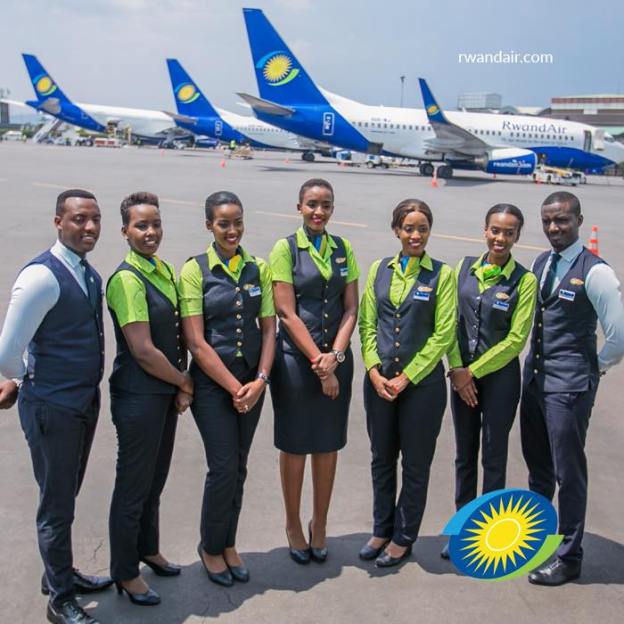By Arnold Gakuba
“RwandAir not profitable, but catalytic for economy”. The news posted by Nicholas Norbrook on theafricanreport.com revealed that Rwanda has hope in RwandAir even if it was not normally profitable the last years as the Rwandan Minister of Finance and Economic Planning Uzziel Ndagijimana affirmed. He declared that Rwanda is pumping money into the tourism sector, which has badly been hit by Covid-19. This hope has roots in the partnership between Rwanda Air and Qatar Airways.
An exclamation mark can be put on the above assertion. RwandAir is not a full property of the Government of Rwanda. The New York Times reported that in February 2020, two months after Qatar Airways purchased a 60% stake in Rwanda’s Bugesera International Airport, the Qatar-state owned airlines purchased a 49% stake in RwandAir. The Finance Minister of Rwanda, Uzziel Ndagijimana is proud that RwandAir is going to play a greater role in the Rwandan economy and has pumped a huge amount of money in the budget year 2020/2021 in a company not owned by the country.
The Rwandan Minister of finance agrees that all sectors of Rwandan economy were affected by Covid-19, the tourism industry in a particular way. As part of its Covid response, the government is pumping $100m over the next two years into the private sector, “And we plan to double this,” says Ndagijimana. At least $50m will go on financial help to hotels. “We gave permission to the banks to restructure the loans, to increase the maturity up to 15 years and provide three years of grace period and reduce the interest rate”, he says. This shows that the government puts much attention to tourism which mostly attracts foreigners. What about other sectors of the Rwandan economy which include the poor?
The government is also pumping additional money into the national carrier, RwandAir, RWF145bn ($145m) in the 2020/2021 budget, up from RWF122bn in the previous year. Ndagijimana says that transport was one of the worst-hit sectors, and that while RwandAir “is not profitable, it has played a catalytic role in our development”. The tourism industry was booming before the pandemic, “but it also helps trade, helps export some light manufactured items and took horticulture products to Europe.” And even when passengers stopped flying, RwandAir helped in importing strategic medical supplies, like protective equipment and testing kits. What a paradoxe! It was reported by RwandAir – Wikipedia that the company has been loss-making for many years as shown in government budgetary reports.
The imminent partnership between RwandAir and Qatar Airways should help shelter the airline from the tough times faced by Kenya Airways or South African Airways. “We are in final negotiations, the company will be stronger with a larger fleet and more resources,” says Uzziel. He declared that the government of Rwanda will remain the majority shareholder with 51% of shares. Which majority is that with only the difference of 2% of shareholding in the company “RwandAir”? Again, in terms of economy, we cannot talk of partnership while the shareholders of the company shall share interest in accordance to their shares. Can we really affirm that Rwanda will profit from RwandAir with 51% of shareholding? Is it realistic to invest such huge amount of money in the company with almost a half of ownership?
Qatar Air is also investing in the new Kigali International Airport. The construction project has kept going despite the pandemic, in part to be able to meet the logistics requirements of the Commonwealth Heads of Government meeting taking place in June 2021. By 2022, the new airport should have the capacity to handle seven million passengers per year, compared to the nearly one million available today. RwandAir meanwhile continues its expansion, and recently became the first African airline to trial the international IATA vaccine travel pass, part of a scheme airlines hope will convince governments to open up borders.
The economic recovery does not just depend on tourism, however, says Ndagijimana. Back in 2020, when Rwanda locked down the country starting in March, the second quarter’s GDP growth figure was -12.4%. “We have never had that except during the genocide,” he says. A progressive recovery was seen in manufacturing and trade, with -3.4% growth in the third quarter. “We don’t have figures for the final quarter, but we expect another improvement, says the finance minister.
One immediate priority – aside from putting money into the private sector – is to ensure food security, with money pumped into agricultural production. The government has bolstered the social security net “to help people falling into poverty after the sudden close of activity, providing for basic needs, foods and so on”, says Ndagijimana. The national budget also has extra funds for the health sector.
All this requires extra cash: Ndagijimana asked parliament to increase the budget nearly 7% to RWF3.4trn. Having tapped $28m in debt service relief from the IMF in 2020, the government is targeting a rebound to 5.6% growth in 2021. What to say? The Rwandan economy relies on others’ companies and debt as confirmed by the minister of finance trying to convince on the progress of Rwandan economy, which is far from the reality. This is the usual speeches of Rwandan government officials who try to embellish the image of Rwanda regarding its economy while it is slipping. Others to say “itekinika” (to mean forgery) which is common with the Government of Kigali lead by Paul Kagame.































































